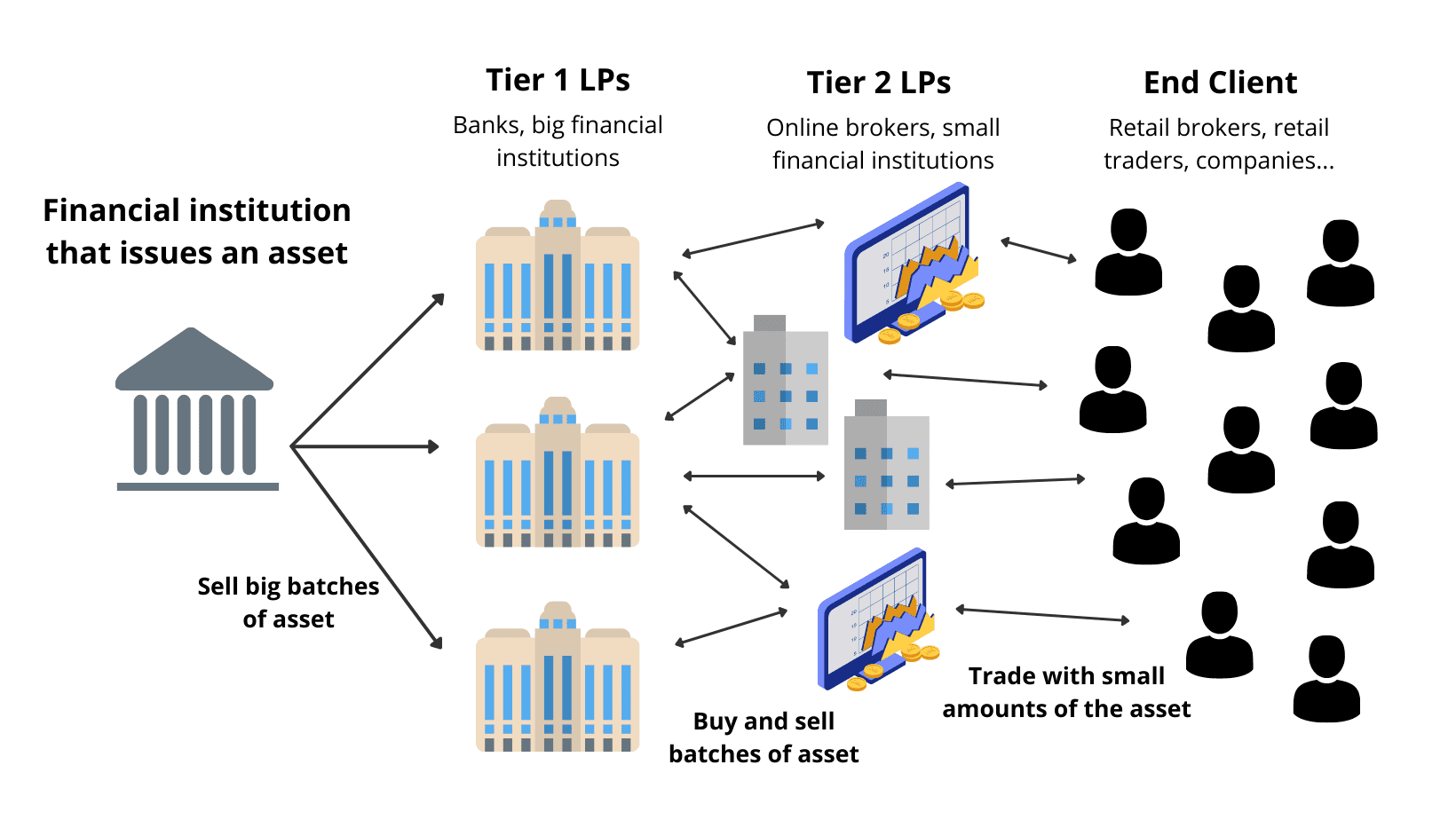Forex Market Liquidity Providers: Institutions Offering Liquidity to Forex Brokers and Traders
In the fast-paced world of forex trading, liquidity is the lifeblood that keeps the market flowing smoothly. Forex liquidity providers play a crucial role in ensuring that traders have access to a deep pool of funds, enabling them to buy and sell currencies at competitive prices. In this article, we will explore the significance of liquidity in the forex market and shed light on the institutions that act as liquidity providers, empowering forex brokers and traders alike.
Table Content
1. Understanding Forex Liquidity
2. The Role of Forex Liquidity Providers
3. Types of Forex Liquidity Providers
4. Why Forex Brokers Rely on Liquidity Providers
5. Footnote
Understanding Forex Liquidity:
Liquidity in the forex market refers to the ease with which a currency pair can be bought or sold without significantly affecting its price. High liquidity translates to tighter spreads, which are the differences between the buying and selling prices. This is advantageous for traders as it reduces their transaction costs.

Conversely, low liquidity can result in wider spreads and slippage, where traders may not be able to execute their orders at their desired price, leading to potential losses. Therefore, having reliable liquidity providers is paramount for the smooth functioning of the forex market.
The Role of Forex Liquidity Providers:
Forex liquidity providers are financial institutions or individuals who supply the market with the necessary funds for trading. They ensure that there is sufficient liquidity at all times, even during times of high volatility or low trading activity. Liquidity providers facilitate the buying and selling of currencies by acting as counterparties to trades and providing competitive bid and ask prices.
These providers can include banks, hedge funds, market makers, and other financial institutions. Their presence creates a dynamic marketplace where traders can access liquidity regardless of their position size, ensuring a level playing field for everyone involved.
Types of Forex Liquidity Providers:
- Banks: Banks are among the primary liquidity providers in the forex market. They offer large volumes of currency pairs, providing both retail and institutional traders with ample opportunities to execute trades.
- Non-Bank Financial Institutions: Apart from traditional banks, various non-bank financial institutions, such as mutual funds and pension funds, also contribute to forex liquidity. These entities participate in the market through forex trading desks, further bolstering liquidity levels.
- Market Makers: Market makers are entities that quote bid and ask prices and are willing to buy or sell a currency pair at any time. They ensure continuous liquidity and often operate as intermediaries between retail traders and larger liquidity providers.
- Electronic Communication Networks (ECNs): ECNs are online platforms that connect buyers and sellers directly. They aggregate prices from multiple liquidity providers, offering traders access to competitive spreads and efficient order execution.
- Prime Brokers: Prime brokers cater to institutional clients and provide them with access to the interbank forex market. They consolidate various liquidity streams, allowing their clients to access deep liquidity and execute large trades.
Why Forex Brokers Rely on Liquidity Providers:
Forex brokers act as intermediaries between traders and liquidity providers. They benefit from establishing strong relationships with reputable liquidity providers as it enhances their overall trading environment. Here are some key reasons why forex brokers rely on liquidity providers:
- Competitive Pricing: With access to multiple liquidity sources, brokers can offer competitive spreads to their clients, attracting more traders to their platforms.
- Order Execution: Reliable liquidity providers ensure that orders are executed promptly and at the best available price, minimizing slippage and ensuring a smooth trading experience for clients.
- Risk Management: By accessing deep liquidity, brokers can offset their client's positions more efficiently, reducing their overall risk exposure.
- Stability: Established liquidity providers contribute to a stable trading environment, ensuring that brokers can deliver consistent services to their clients.
Footnote:
In Summary, forex liquidity providers play a crucial role in maintaining the vibrancy and efficiency of the forex market. Their presence ensures that traders can execute orders promptly, enjoy competitive pricing, and experience minimal slippage. Institutions such as banks, market makers, ECNs, and prime brokers contribute to the overall liquidity ecosystem, providing valuable services to forex brokers and traders worldwide.
To thrive in the forex market, it is vital for brokers to establish strong partnerships with reputable liquidity providers. By doing so, they can create a seamless trading experience for their clients and build a reputation as a trusted and reliable player in the ever-evolving world of forex trading.
For those seeking to explore the forex market, remember that having reliable liquidity providers on your side can make a significant difference in your trading journey. Always prioritize transparency, stability, and competitive pricing when choosing a forex broker.











Discussion